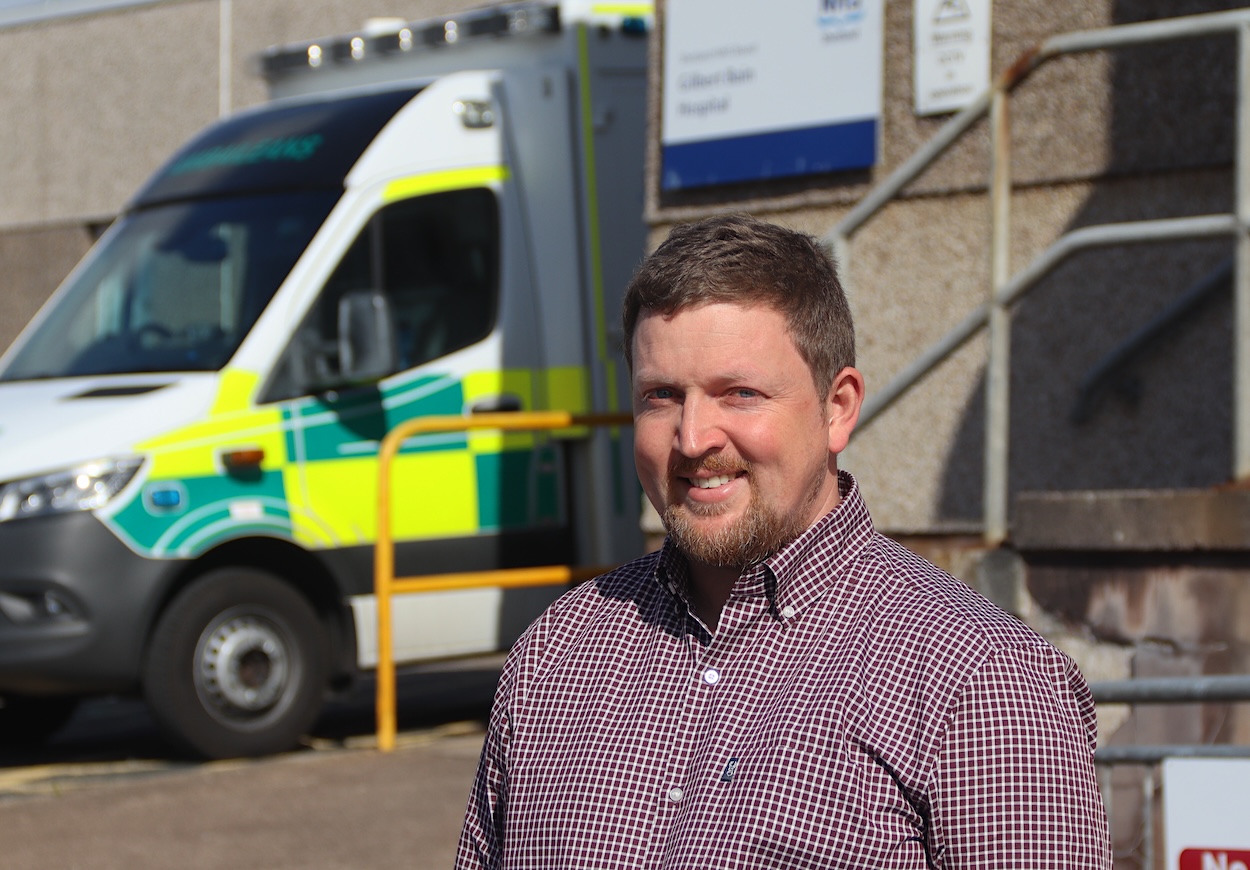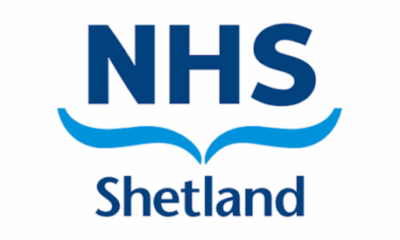Health
New Consultant Surgeon Joins NHS Shetland Amid Recruitment Challenges

NHS Shetland welcomed its newest consultant rural general surgeon, Dr. Pete Alexander, who began his role on August 6, 2023. In a recent interview at the Gilbert Bain Hospital cafeteria, Dr. Alexander expressed excitement about the diverse responsibilities that come with his position and the strong sense of community he has experienced. His recruitment comes during a period of renewed efforts by NHS Shetland to address the ongoing challenge of attracting medical professionals to the remote islands.
Dr. Alexander acknowledged the breadth of knowledge required for his role, stating, “That’s what drew me here.” His appointment marks a positive step for NHS Shetland, which has faced difficulties in filling positions for consultants, general practitioners (GPs), and other essential healthcare roles. According to Brian Chittick, the health board’s chief executive, the organization is gradually overcoming these recruitment hurdles.
The financial implications of relying on locum workers are significant. NHS Shetland has spent approximately £900,000 on agency locums during the first four months of the current financial year, a figure that reflects the ongoing struggle to maintain adequate staffing levels. Locum staff costs can range from 1.1 to 1.4 times higher than employing permanent staff, placing additional strain on an already underfunded health service.
Despite these challenges, NHS Shetland has made progress in recent months. The number of vacant GP positions has decreased from five to one, with three new GPs appointed in 2023. These include positions in Lerwick, the West Mainland on a rotational basis, and Scalloway, alongside a new GP for Yell appointed last year. In addition, a consultant anaesthetist has recently joined the team, although several key roles, including consultant psychiatrists and a consultant in obstetrics and gynaecology, remain unfilled and reliant on locum staff.
Dr. Alexander brings a wealth of experience to his new role. His connection to Shetland runs deep; his uncle, Gordon McFarlane, was a former consultant surgeon who retired in July 2024. The 39-year-old surgeon, originally from Cardiff and raised in South Africa and Inverness, first visited Shetland as a student. His journey to becoming a consultant involved rigorous training, including a two-year fellowship, which he completed before starting his position at NHS Shetland.
The responsibilities of a consultant surgeon are considerable, as Dr. Alexander explained, “You are taking decisions that are affecting people and that could be life-changing for them.” His role encompasses a wide range of surgical procedures, including operations for various cancers, hernia repairs, and gallbladder surgeries. Additionally, he is involved in managing trauma cases, stabilizing patients for transfers, and handling emergencies.
Chittick, who joined NHS Shetland as a dentist in 2015 and became chief executive in 2023, shared his insights on the challenges of recruiting healthcare professionals in rural areas. He emphasized the unique rewards of working closely with the community, saying, “You nip down to Tesco and get feedback from two or three people about the service you are providing.”
Despite the personal fulfilment many find in island life, Chittick noted that the uncertainties stemming from Brexit, changes in international recruitment policies, and an overall shortage of healthcare professionals across the UK contribute to the difficulties in attracting talent. He also highlighted the need for a better work-life balance and the demographic shifts of an ageing population that complicate staffing.
NHS Shetland is addressing these issues by offering flexible job opportunities and professional development programs. Initiatives like “Rediscover the Joy” enable healthcare professionals to experience working in rural settings without a long-term commitment. Chittick confirmed that this approach has led to some GPs transitioning to permanent roles.
The annual Viking Conference, held in Shetland, serves as a platform for the rural surgical community to share knowledge and inspire new medical professionals. Chittick noted the importance of training early in careers to prepare future healthcare providers for the unique demands of rural care.
As NHS Shetland continues to rely on locum and agency workers to fill gaps, the focus remains on long-term recruitment strategies. Chittick stated, “By using the same locums, patient experience is better, makes it safe and gets consistency.” While this approach may not be the most cost-effective, it provides quality care for the local community.
Overall, the appointment of Dr. Alexander and the recent recruitment successes represent a hopeful turn for NHS Shetland as it works to build a sustainable healthcare workforce for its residents.
-

 Entertainment3 months ago
Entertainment3 months agoAnn Ming Reflects on ITV’s ‘I Fought the Law’ Drama
-

 Entertainment4 months ago
Entertainment4 months agoKate Garraway Sells £2 Million Home Amid Financial Struggles
-

 Health3 months ago
Health3 months agoKatie Price Faces New Health Concerns After Cancer Symptoms Resurface
-

 Entertainment3 months ago
Entertainment3 months agoCoronation Street’s Carl Webster Faces Trouble with New Affairs
-

 Entertainment3 months ago
Entertainment3 months agoWhere is Tinder Swindler Simon Leviev? Latest Updates Revealed
-

 Entertainment4 months ago
Entertainment4 months agoMarkiplier Addresses AI Controversy During Livestream Response
-

 Science1 month ago
Science1 month agoBrian Cox Addresses Claims of Alien Probe in 3I/ATLAS Discovery
-

 Health4 months ago
Health4 months agoCarol Vorderman Reflects on Health Scare and Family Support
-

 Entertainment4 months ago
Entertainment4 months agoKim Cattrall Posts Cryptic Message After HBO’s Sequel Cancellation
-

 World2 weeks ago
World2 weeks agoBailey Announces Heartbreaking Split from Rebecca After Reunion
-

 Entertainment3 months ago
Entertainment3 months agoOlivia Attwood Opens Up About Fallout with Former Best Friend
-

 Entertainment1 week ago
Entertainment1 week agoCoronation Street Fans React as Todd Faces Heartbreaking Choice











